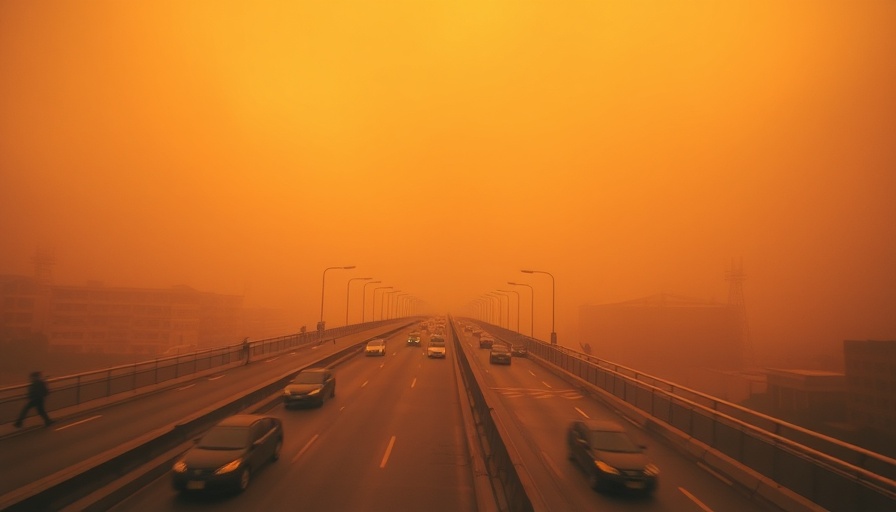
Wildfire Smoke's Hidden Cost: Mental Health Risks
As wildfires grow more frequent and severe—driven by climate change—they bring with them not just physical dangers but also significant mental health challenges. Recently published research in the JAMA Network Open highlights how smoke from these fires increases the risk of various mental health issues, showing that we need to pay attention not just to air quality but to our emotional wellbeing.
Understanding the Impact of Wildfire Smoke on Mental Health
The study, conducted by researchers from Harvard T.H. Chan School of Public Health, analyzed data from California's 2020 wildfire season, the state's harshest yet. It revealed that emergency room visits for mental health problems surged on days with high levels of wildfire smoke. Specifically, every increase of 10 micrograms per cubic meter in particulate pollution correlated with an 8% rise in visits for mental health issues overall. Among specific conditions, the risks jumped significantly: 15% for depression, 29% for other mood disorders, and 6% for anxiety.
Diverse Vulnerabilities Amid Increasing Smoke
Further examination of the data disclosed that not everyone experiences these effects equally. Women faced a 17% increased risk, while children's risk was alarming—46% higher than average. The disparities extended to racial and ethnic groups, with Black individuals experiencing more than double the risk for mood disorders related to wildfire smoke exposure and Hispanic individuals showing a 30% increased risk. Such findings emphasize the urgent need for mental health support, especially in vulnerable communities.
Addressing Mental Health Emergencies During Wildfire Seasons
Researchers stress that healthcare systems must prepare for potential spikes in mental health crises during wildfire seasons, pointing toward a broader public health implication that often goes unnoticed. With wildfires expected to amplify due to climate conditions, ensuring access to mental health care is paramount. As Dr. YounSoo Jung noted, "Existing health inequities may be worsened by wildfire smoke exposure," making the call for equitable access to mental health resources all the more critical.
Taking Proactive Steps for Mental Wellbeing
This urgent information compels all of us to consider how we can safeguard mental health in our communities. Practical steps such as informing oneself about the mental health resources available and advocating for community support initiatives can substantially impact those affected by the smoke from wildfires. Additionally, understanding stress management techniques and exploring natural alternatives to manage anxiety can be beneficial.
In conclusion, with wildfires on the rise, we must confront their multifaceted impact on health and strive for comprehensive strategies that encompass both physical and mental wellbeing.
Contact us for more details on mental health services and how you can help in your community.
 Add Row
Add Row  Add
Add 




Write A Comment